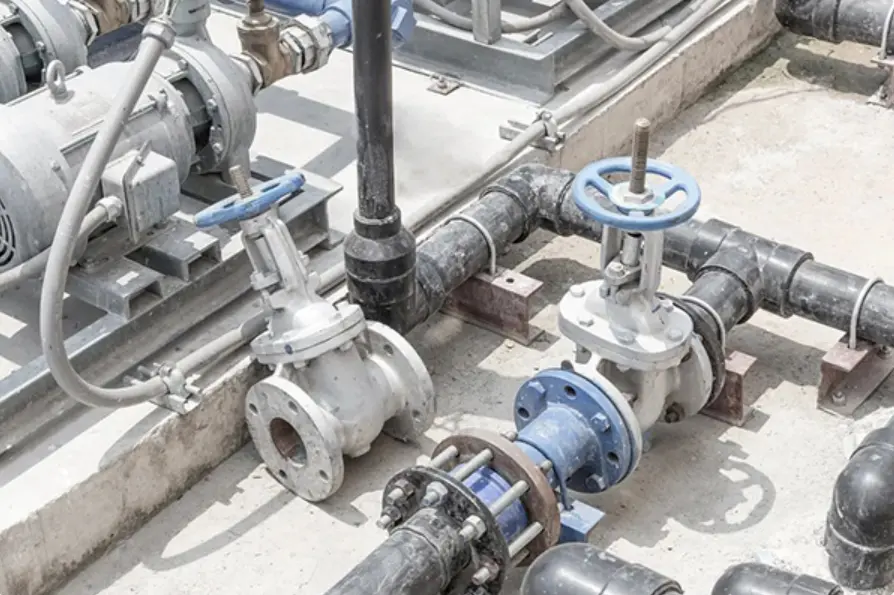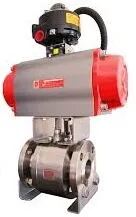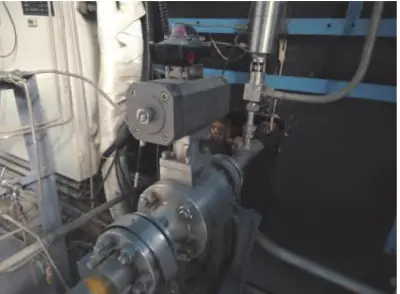Do Valves Require Human Supervision?
Apr 22, 2024
Valves are essential components in industrial equipment and systems, used to control the flow of fluids such as liquids and gases. In many applications, the proper operation of valves is crucial to ensure equipment safety and system stability. So, do valves necessarily require human supervision? This question involves multiple aspects including the working principles of valves, application scenarios, and safety requirements.

Firstly, the working principle of valves determines the need for a certain level of monitoring. Valves control fluid flow through opening, closing, or regulating operations, which require precise execution to ensure smooth flow when needed or prompt closure when necessary. If valves malfunction or are operated erroneously, it may lead to fluid leakage, equipment damage, or even safety accidents. Therefore, having someone supervise valves can help identify and address these issues promptly, preventing greater losses.
Secondly, the application scenarios of valves also influence the need for human supervision. In some industrial settings, valves may be located in remote areas or positions that are difficult to observe directly, requiring monitoring through remote monitoring systems or automated control systems. However, these systems cannot entirely replace human supervision. For instance, in emergencies, human supervision can react more quickly to prevent accidents. Moreover, for certain types of valves such as safety valves, and pressure relief valves, their operational status directly affects system safety, thus requiring human supervision to ensure normal operation.
Lastly, safety requirements are also a significant factor in determining whether valves need human supervision. Safety is always a paramount consideration in industrial production and operations. As one of the key equipment, the safety of valves has a significant impact on the overall system. Therefore, in situations where high-level safety assurance is needed, such as in chemical, petroleum, and natural gas industries, valves typically require human supervision to ensure their safe operation.
In conclusion, whether valves require human supervision depends on a comprehensive consideration of multiple factors. Although modern technology enables remote monitoring and automated control, in many cases, human supervision remains necessary. Through reasonable monitoring and management measures, the normal operation and safety performance of valves can be ensured, providing robust protection for industrial production and operations.

Firstly, the working principle of valves determines the need for a certain level of monitoring. Valves control fluid flow through opening, closing, or regulating operations, which require precise execution to ensure smooth flow when needed or prompt closure when necessary. If valves malfunction or are operated erroneously, it may lead to fluid leakage, equipment damage, or even safety accidents. Therefore, having someone supervise valves can help identify and address these issues promptly, preventing greater losses.
Secondly, the application scenarios of valves also influence the need for human supervision. In some industrial settings, valves may be located in remote areas or positions that are difficult to observe directly, requiring monitoring through remote monitoring systems or automated control systems. However, these systems cannot entirely replace human supervision. For instance, in emergencies, human supervision can react more quickly to prevent accidents. Moreover, for certain types of valves such as safety valves, and pressure relief valves, their operational status directly affects system safety, thus requiring human supervision to ensure normal operation.
Lastly, safety requirements are also a significant factor in determining whether valves need human supervision. Safety is always a paramount consideration in industrial production and operations. As one of the key equipment, the safety of valves has a significant impact on the overall system. Therefore, in situations where high-level safety assurance is needed, such as in chemical, petroleum, and natural gas industries, valves typically require human supervision to ensure their safe operation.
In conclusion, whether valves require human supervision depends on a comprehensive consideration of multiple factors. Although modern technology enables remote monitoring and automated control, in many cases, human supervision remains necessary. Through reasonable monitoring and management measures, the normal operation and safety performance of valves can be ensured, providing robust protection for industrial production and operations.
Previous: Air Control Valves
Next: Titanium Alloy Globe Check Valves



